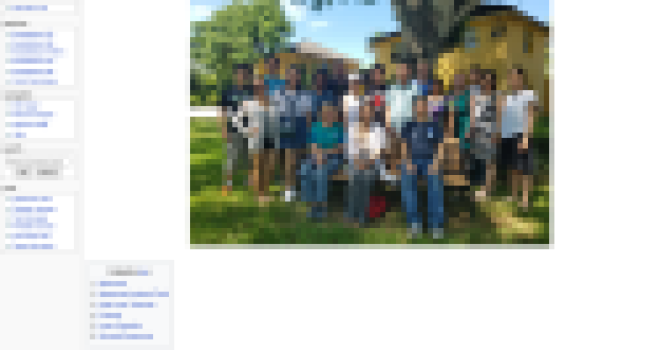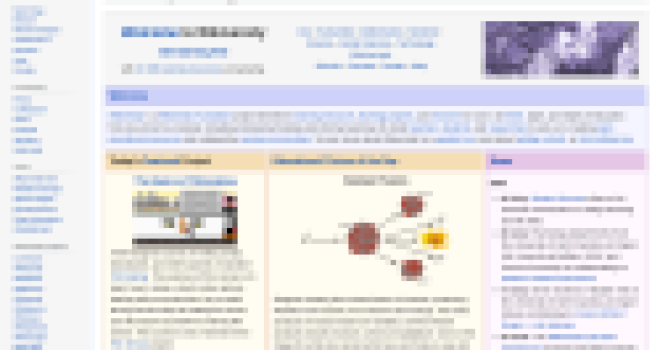LabLynx Wiki

Contents
Fecundity is defined in two ways; in human demography, it is the potential for reproduction of a recorded population as opposed to a sole organism, while in population biology, it is considered similar to fertility,[1][2][3] the natural capability to produce offspring,[4] measured by the number of gametes (eggs), seed set, or asexual propagules.
LIMSpec Wiki

Contents
Fecundity is defined in two ways; in human demography, it is the potential for reproduction of a recorded population as opposed to a sole organism, while in population biology, it is considered similar to fertility,[1][2][3] the natural capability to produce offspring,[4] measured by the number of gametes (eggs), seed set, or asexual propagules.
Bioinformatics Wiki

Contents
Fecundity is defined in two ways; in human demography, it is the potential for reproduction of a recorded population as opposed to a sole organism, while in population biology, it is considered similar to fertility,[1][2][3] the natural capability to produce offspring,[4] measured by the number of gametes (eggs), seed set, or asexual propagules.
IHE Wiki

Contents
Fecundity is defined in two ways; in human demography, it is the potential for reproduction of a recorded population as opposed to a sole organism, while in population biology, it is considered similar to fertility,[1][2][3] the natural capability to produce offspring,[4] measured by the number of gametes (eggs), seed set, or asexual propagules.
HL7 Wiki

Contents
Fecundity is defined in two ways; in human demography, it is the potential for reproduction of a recorded population as opposed to a sole organism, while in population biology, it is considered similar to fertility,[1][2][3] the natural capability to produce offspring,[4] measured by the number of gametes (eggs), seed set, or asexual propagules.
Clinfowiki

Contents
Fecundity is defined in two ways; in human demography, it is the potential for reproduction of a recorded population as opposed to a sole organism, while in population biology, it is considered similar to fertility,[1][2][3] the natural capability to produce offspring,[4] measured by the number of gametes (eggs), seed set, or asexual propagules.
OpenWetWare

Contents
Fecundity is defined in two ways; in human demography, it is the potential for reproduction of a recorded population as opposed to a sole organism, while in population biology, it is considered similar to fertility,[1][2][3] the natural capability to produce offspring,[4] measured by the number of gametes (eggs), seed set, or asexual propagules.
Statistical Genetics Wiki

Contents
Fecundity is defined in two ways; in human demography, it is the potential for reproduction of a recorded population as opposed to a sole organism, while in population biology, it is considered similar to fertility,[1][2][3] the natural capability to produce offspring,[4] measured by the number of gametes (eggs), seed set, or asexual propagules.
Cloud-Standards.org

Contents
Fecundity is defined in two ways; in human demography, it is the potential for reproduction of a recorded population as opposed to a sole organism, while in population biology, it is considered similar to fertility,[1][2][3] the natural capability to produce offspring,[4] measured by the number of gametes (eggs), seed set, or asexual propagules.
WikiBooks

Contents
Fecundity is defined in two ways; in human demography, it is the potential for reproduction of a recorded population as opposed to a sole organism, while in population biology, it is considered similar to fertility,[1][2][3] the natural capability to produce offspring,[4] measured by the number of gametes (eggs), seed set, or asexual propagules.
LIMSwiki

Contents
Fecundity is defined in two ways; in human demography, it is the potential for reproduction of a recorded population as opposed to a sole organism, while in population biology, it is considered similar to fertility,[1][2][3] the natural capability to produce offspring,[4] measured by the number of gametes (eggs), seed set, or asexual propagules.
Wikiversity

Contents
Fecundity is defined in two ways; in human demography, it is the potential for reproduction of a recorded population as opposed to a sole organism, while in population biology, it is considered similar to fertility,[1][2][3] the natural capability to produce offspring,[4] measured by the number of gametes (eggs), seed set, or asexual propagules.
Wikipedia

Contents
Fecundity is defined in two ways; in human demography, it is the potential for reproduction of a recorded population as opposed to a sole organism, while in population biology, it is considered similar to fertility,[1][2][3] the natural capability to produce offspring,[4] measured by the number of gametes (eggs), seed set, or asexual propagules.

















